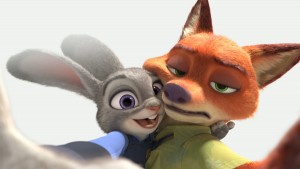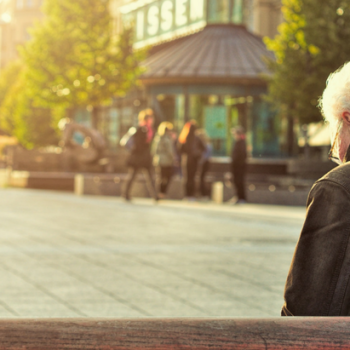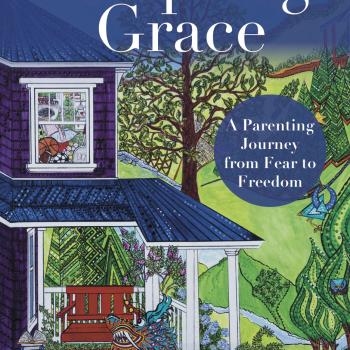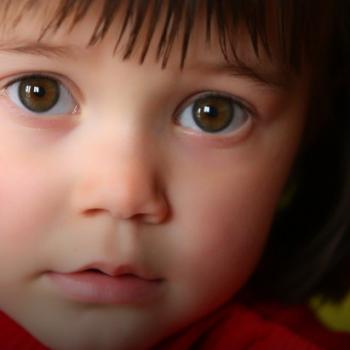
*Spoiler Warning* To really discuss the movie, there’s going to be an assumption that you’ve seen it, or don’t mind knowing what it’s about. I saw the movie on Monday and knew the plot and the ultimate villain going in, but that did nothing to reduce my enjoyment of the movie and story. So, read on, or go see the movie and then come back to read and discuss!
*****
We were crouching under the big picture window in our living room. Watching, trying not to be obvious about it. It was so exciting. I was maybe 7 or 8. And what we were watching was the culmination of a plan that had started days or weeks ago, when the police knocked on our door and asked if they could use our house as a stake out. They thought the house across the street was a ‘drug house’ and they needed evidence before they made their big move. And now we were watching as they raided the house and handcuffed the occupants, putting the bad guys in jail.
There is a lot of self-examination and critical thinking to be done when you grow up thinking minorities + poverty + drugs = bad guys. It never would have occurred to me to wonder what happened to the families of the arrested, or if the government should be counted in with the bad guys when it came to drugs, and it didn’t until I read this review of Zootopia by The Root and followed their links.
It never occurs to Judy Hopps, the bunny star of Zootopia, either. The possibility of drugs itself affecting the population of Zootopia doesn’t even occur to her. Because when the peaceful harmony of diversity breaks down, Judy assumes it is because of biology. Deep down she thinks that some people – animals, I mean – are inherently more dangerous than others. Vicious predators vs. meek prey.
Zootopia is a movie about animals, but it’s actually not about animals at all. It’s about race and humans and whiteness and implicit bias, and even the police and the carceral system. It’s about two competing ideas: as pop star Gazelle says, “We cannot let fear divide us”, vs. the villain of the movie who claims “Fear always works”.
This movie tries to get at everything, and personally, I think it succeeds. Some of what they cover includes: the right to refuse service, being articulate, touching of the hair, affirmative action (which also shows even though Judy is a beneficiary of it, she works her ass off to earn it), ‘you can’t say that word but we can’, patronizing, and wearing a muzzle (which left me breathless and on the verge of tears, after seeing these images last month during Black History Month). But as heavy-handed as it could sometimes be, it wasn’t completely obvious to my kids, the younger ones especially, that this movie has real world implications. Or as my 9 year old said, “Why are you talking about white and black people? This movie is about animals!”
I thought Zootopia did a good job of introducing systemic racism. They show how pervasive it can be. The front desk clerk at the police department suffers. The Mayor, who is a predator, gets caught up in it. The media fans the flames. The fear and hysteria overtake everyone.
And there was individual racism too, and of course it comes complete with white tears. Which solves the problem, obviously. But before that, there’s a great scene where Judy is confronted with the fact that she has implicit bias against the predators. Against her friend. I don’t want to spoil it because it’s such a good scene, but you guys. There is a movie that lets us bring up a hard to describe topic like implicit bias with our kids. And it’s from Disney. Whatttt?
Zootopia also touches on the issue of policing. Gene Denby at NPR has a good review on this part of it, and I agree and disagree with him. They don’t really make a big deal about Judy handing out hundreds of parking tickets. But later on in the movie, they do show people angry at her for it, and one kid even says to her “my mom wishes you were dead”.
Whereas I took the animals’ anger as being a commentary on ticketing, my kids didn’t. As my 14 year old said, “I thought she was doing her job; she was just having a bad day.” And that’s true – they didn’t make the job of ticketing out to be a bad one. I think they could have easily made the seriousness of that more explicit. A hamster could have said “great, now I can’t feed my family this week because of this ticket”.
I also would have liked them to make a bigger point about the effect on the Otterton family when Mr. Otterton was incarcerated. And like Gene said, at the end they show Bunny Judy and her Fox partner Nick in a military-style police car, with no commentary about it.
But I think there is a case to be made that this movie is critical of bad policing, albeit in a subtle way. (Because we know what would happen if Disney were to come out in a strong way against bad and over policing. There would be a boycott so fast Disney would think it was the 90s all over again.)
The point of the movie is that people are not defined by their skin color (or fur). And to treat a whole group as if there is something pathological about them is wrong.
And so when Judy does this – when she blames an outbreak of ‘savagery’ on their biology – the police force calls her a hero. They put her on a poster. It feels wrong, and I think it’s supposed to. I think we are supposed to side-eye the Chief of Police and the Mayor’s office – the system – who tries to turn something so wrong into a heroic moment.
And then Judy gives a speech, declining the ‘honor’, and says something along the lines of “there can be good cops, and they are supposed to serve and protect. But sometimes police break things. And I broke the city”.
It certainly seems very rare for police to admit that maybe they are at fault sometimes. If the movie was just a sob story about white tears and individual racism, Judy could have taken her hero status and ran with it, saying “I was just doing my job”, and still apologized to Nick.
But by implicating the police department, an individual cop, and the mayor’s office, Zootopia is showing us the system at work, and that sometimes the cops are the ones who lead to the breakdown of a city. I mean, if we could get a Darren Wilson to say “I broke the city”…
I asked my kids afterwards if they thought the cops were the good guys, the bad guys, or in the middle, and they all said in the middle.
For a society that is trained to never cross the blue line, and instead trusts their word on who the bad guys are and welcomes the police into our homes, I think ‘in the middle’ actually says a lot.
Of course, there ends up being an explanation (drugs) for the predator-like behavior, because there is nothing pathological about skin color. And just like Judy has to confront her own fears and biases, and just like she has to listen to Nick’s story of discrimination and oppression, so too should white people examine themselves and listen to the stories of minorities, and so too should white parents talk about these things with their children.
Because a society that uses the language of superpredators and thugs is a society divided by fear. But as Judy Hopps says, (in a saccharine-heavy voice-over ending), “Try to make the world a better place. Look inside yourself and recognize that change starts with you”.












